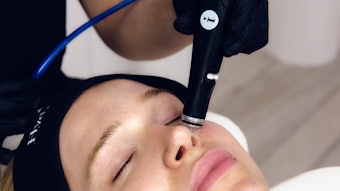Taking an important step that may help significantly reduce the incidence of skin cancer in Americans, President George W. Bush yesterday signed the Tanning Accountability and Notification Act (TAN Act) into law. As part of the more comprehensive “Food and Drug Administration Amendments Act of 2007 (HR 3580),” the TAN Act directs the U.S. Food and Drug Administration (FDA), which regulates tanning equipment, to re-examine the language and positioning of the warning label on indoor tanning devices to ensure that it most effectively communicates the risk of irreversible damage to the eyes and skin, including skin cancer.
“The American Academy of Dermatology Association commends President Bush for signing this bill and recognizing the importance of proper warning labels on indoor tanning equipment,” said Diane R. Baker, MD, FAAD, president of the American Academy of Dermatology Association (Academy). “Demonstrating our commitment to reducing the incidence of and mortality from skin cancer, the Academy worked with congressional leaders to develop this bill. We congratulate bill sponsors Sens. Jack Reed (D-RI) and Johnny Isakson (R-GA) and Reps. Carolyn Maloney (D-NY) and Ginny Brown-Waite (R-FL). Their tireless efforts may ultimately help educate Americans about the health risks of indoor tanning, empowering them to make informed decisions.”
The new law requires the FDA to conduct consumer testing to “determine consumer understanding of label warnings.” It requires the Secretary of Health and Human Services to report back to Congress in one year with the results, including “the measures being implemented by the Secretary to significantly reduce the risks associated with indoor tanning devices.”
“The current labeling on tanning equipment inadequately explains the serious risks associated with indoor tanning,” said Baker. “The TAN Act is a first step to correct this and ultimately will help educate the millions of Americans who tan each day about the potential cancer risks associated with ultraviolet (UV) radiation.”
Nearly 30 million people tan indoors in the United States annually. Of these, 2.3 million are teens. Indoor tanning equipment emits ultraviolet radiation which has been declared a known carcinogen by the Department of Health and Human Services. More than 1 million new cases of skin cancer will be diagnosed in the United States this year. Additionally, exposure to UV light is a known risk factor for melanoma, the second most common cancer in women aged 20-29.
“The American Academy of Dermatology Association commends President Bush for signing this bill and recognizing the importance of proper warning labels on indoor tanning equipment,” said Diane R. Baker, MD, FAAD, president of the American Academy of Dermatology Association (Academy). “Demonstrating our commitment to reducing the incidence of and mortality from skin cancer, the Academy worked with congressional leaders to develop this bill. We congratulate bill sponsors Sens. Jack Reed (D-RI) and Johnny Isakson (R-GA) and Reps. Carolyn Maloney (D-NY) and Ginny Brown-Waite (R-FL). Their tireless efforts may ultimately help educate Americans about the health risks of indoor tanning, empowering them to make informed decisions.”
The new law requires the FDA to conduct consumer testing to “determine consumer understanding of label warnings.” It requires the Secretary of Health and Human Services to report back to Congress in one year with the results, including “the measures being implemented by the Secretary to significantly reduce the risks associated with indoor tanning devices.”
“The current labeling on tanning equipment inadequately explains the serious risks associated with indoor tanning,” said Baker. “The TAN Act is a first step to correct this and ultimately will help educate the millions of Americans who tan each day about the potential cancer risks associated with ultraviolet (UV) radiation.”
Nearly 30 million people tan indoors in the United States annually. Of these, 2.3 million are teens. Indoor tanning equipment emits ultraviolet radiation which has been declared a known carcinogen by the Department of Health and Human Services. More than 1 million new cases of skin cancer will be diagnosed in the United States this year. Additionally, exposure to UV light is a known risk factor for melanoma, the second most common cancer in women aged 20-29.










